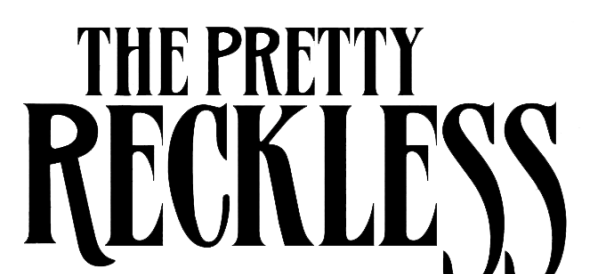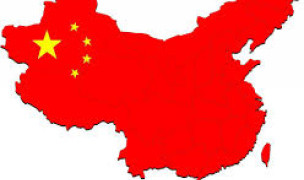 1 Terms
1 TermsHome > Terms > English (EN) > censorship
censorship
Many Americans probably believe censorship is not only wrong, but also illegal under the Bill of Rights. Yet, in practice, many are also willing to accept government censorship in times of national crisis or military emergency. Jonathon Green, author of the Encyclopedia of Censorship, labels a second, more controversial censorship as “castration”—the ability of some to determine what may be read or disseminated and who may see it. This may entail protection of “innocents,” especially children, or avoid offending sensibilities of some groups (New York Mayor Rudolph Giuliani’s claim that a 1999 exhibit of British art, “Sensations,” offended Catholics). Censorship tends to focus less on political materials than sexual ones, although hate literature and violence have also become points of debate. The issue of censorship, however, has been highly politicized in government actions, court and legislative actions and citizen response.
Censorship for reasons of security established in the World Wars, was institutionalized when President Truman allowed peacetime agencies to classify materials as “Top Secret,” etc. While this system was subsequently modified, the Defense Department and other government bureaus control massive amounts of information, a position increasingly complicated by computers and telecommunications technology. The 1966 Freedom of Information Act allowed citizens to view much government information on themselves and, with restrictions, on other public figures. In other cases, though, like the 1971 “Pentagon Papers” case, a whistle-blower and news organization exposed secret information on American involvement in Vietnam as a form of civil disobedience that was ultimately upheld in the Supreme Court. Still, news media and citizens accepted restrictions on coverage during the Grenada invasion and the Gulf War.
Censorship with regard to taste and morality proves more divisive. The US lacks formal federal censorship for most domestic media, although federal laws have controlled distribution of obscene materials by mail (under the 1873 Comstock Act), importation of some materials and child pornography. These laws have faced test cases to determine obscenity versus free speech and art. These include the 1933 declaration that Joyce’s Ulysses was art, not subject to the Tariff Act, and the 1957 Roth decision, which established a standard based on the interpretations of “average persons” (tested two year’s later by Grove Press’ distribution of Lady Chatterley’s Lover).
Often, though, obscenity and censorship involve more local actions and standards— whether to display certain magazines, buy library books or locate sexually charged activities in areas against “community standards.” Film censorship has also been the purview of states and cities: the phrase “banned in Boston” could be used to endorse a risqué film elsewhere. Censorship was even applied to newsreels before this was banned by court decisions.
Local schools and libraries have been especially sensitive areas. While sex is frequently an issue, battles over circulation and textbooks have ranged from protests against racial stereotypes to fundamentalist attacks on the wizardy of Harry Potter or evolution. The American Library Association’s 1939 Bill of Rights challenged decades of local censorship of morality taste and politics in local libraries, framing these institutions as open beacons of information and debate. Schools, however, have been subject to powerful lobbying by parents and organized groups in local institutions and statewide adoption of textbooks. Again, censorship arguments play on the special vulnerability of the child. Administrators also manipulate decisions and opportunities: censorship of highschool newspapers has grown since the 1988 Supreme Court decision in Hazelwood School District v. Kuhlemeier. Before Hazelwood, school-sponsored publications were permitted when “reasonably related to legitimate pedagogical concerns.” Despite these complex and contested structures of censorship and the Freedom of Speech issues debating both security and cultural claims, institutional self-censorship has also been prominent in American life. These include production codes for Hollywood and comics, media ratings of products and audiences—whether films, video games or music and control devices like the V-chip or various forms of parental control for sale to deal with informational issues of the Internet. Often, these entail debates on deeply divisive issues like sexuality and violence or their impacts.
Debates sometimes overlook subtler and yet troubling questions like those of ABC and Disney, where media conglomerates have created a climate in which news hostile to the corporate culture seldom is broadcast. Political correctness also evokes self-censorship.
Omissions accepted so as not to offend (gay parents in elementary school books) or because of perceptions of audience (lack of minority figures or interracial romance on network television) remind us that self-censorship has a deep toll when significant issues are never discussed This is epitomized in the dramatic AIDS slogan: “Silence=Death.”
- Part of Speech: noun
- Synonym(s):
- Blossary:
- Industry/Domain: Culture
- Category: American culture
- Company: Routledge
- Product:
- Acronym-Abbreviation:
Other Languages:
Member comments
Terms in the News
Billy Morgan
Sports; Snowboarding
The British snowboarder Billy Morgan has landed the sport’s first ever 1800 quadruple cork. The rider, who represented Great Britain in the 2014 Winter Olympics in Sochi, was in Livigno, Italy, when he achieved the man-oeuvre. It involves flipping four times, while body also spins with five complete rotations on a sideways or downward-facing axis. The trick ...
Marzieh Afkham
Broadcasting & receiving; News
Marzieh Afkham, who is the country’s first foreign ministry spokeswoman, will head a mission in east Asia, the state news agency reported. It is not clear to which country she will be posted as her appointment has yet to be announced officially. Afkham will only be the second female ambassador Iran has had. Under the last shah’s rule, Mehrangiz Dolatshahi, a ...
Weekly Packet
Language; Online services; Slang; Internet
Weekly Packet or "Paquete Semanal" as it is known in Cuba is a term used by Cubans to describe the information that is gathered from the internet outside of Cuba and saved onto hard drives to be transported into Cuba itself. Weekly Packets are then sold to Cuban's without internet access, allowing them to obtain information just days - and sometimes hours - after it ...
Asian Infrastructure Investment Bank (AIIB)
Banking; Investment banking
The Asian Infrastructure Investment Bank (AIIB) is an international financial institution established to address the need in Asia for infrastructure development. According to the Asian Development Bank, Asia needs $800 billion each year for roads, ports, power plants or other infrastructure projects before 2020. Originally proposed by China in 2013, a signing ...
Spartan
Online services; Internet
Spartan is the codename given to the new Microsoft Windows 10 browser that will replace Microsoft Windows Internet Explorer. The new browser will be built from the ground up and disregard any code from the IE platform. It has a new rendering engine that is built to be compatible with how the web is written today. The name Spartan is named after the ...
Featured Terms
The Pretty Rekless
The Pretty Reckless are an American alternative rock band from New York, NY, U.S. The current members are Taylor Momsen (lead vocals, rhythm guitar), ...
Contributor
Featured blossaries
Browers Terms By Category
- Material physics(1710)
- Metallurgy(891)
- Corrosion engineering(646)
- Magnetics(82)
- Impact testing(1)
Materials science(3330) Terms
- Social media(480)
- Internet(195)
- Search engines(29)
- Online games(22)
- Ecommerce(21)
- SEO(8)
Online services(770) Terms
- Poker(470)
- Chess(315)
- Bingo(205)
- Consoles(165)
- Computer games(126)
- Gaming accessories(9)
Games(1301) Terms
- Ceramics(605)
- Fine art(254)
- Sculpture(239)
- Modern art(176)
- Oil painting(114)
- Beadwork(40)
Arts & crafts(1468) Terms
- Bridge(5007)
- Plumbing(1082)
- Carpentry(559)
- Architecture(556)
- Flooring(503)
- Home remodeling(421)





